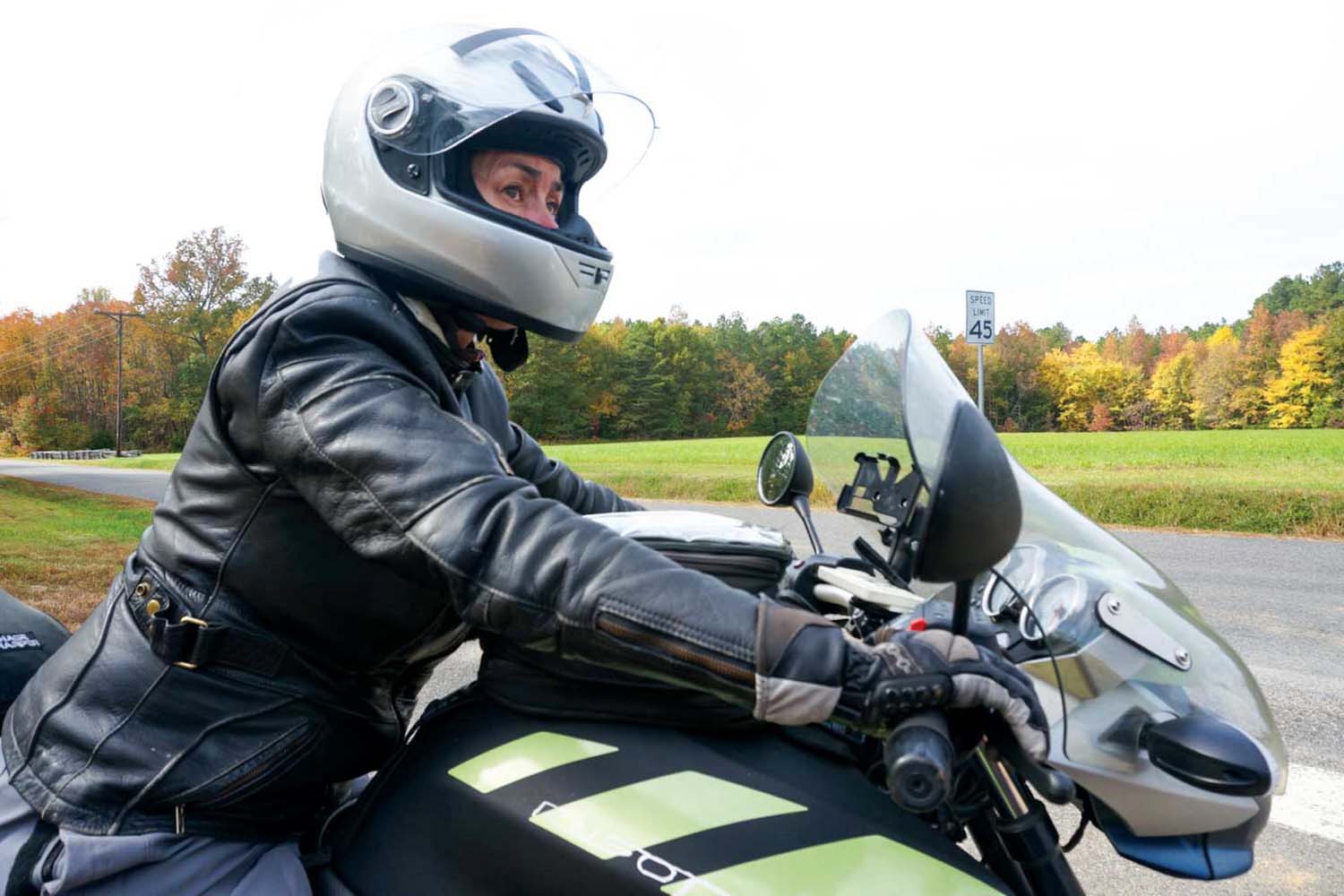Originally featured in our sister publication Rider, this essay first appeared in Motorcycles Are Magic: An Anthology, edited by Melissa Holbrook Pierson with assistance from George Sarrinikolaou and published in 2021 by 10mm Socket Press. Pierson, the author, participates in the legendary Slimey Crud Run and explores how motorcyclists stay connected, intended or not.
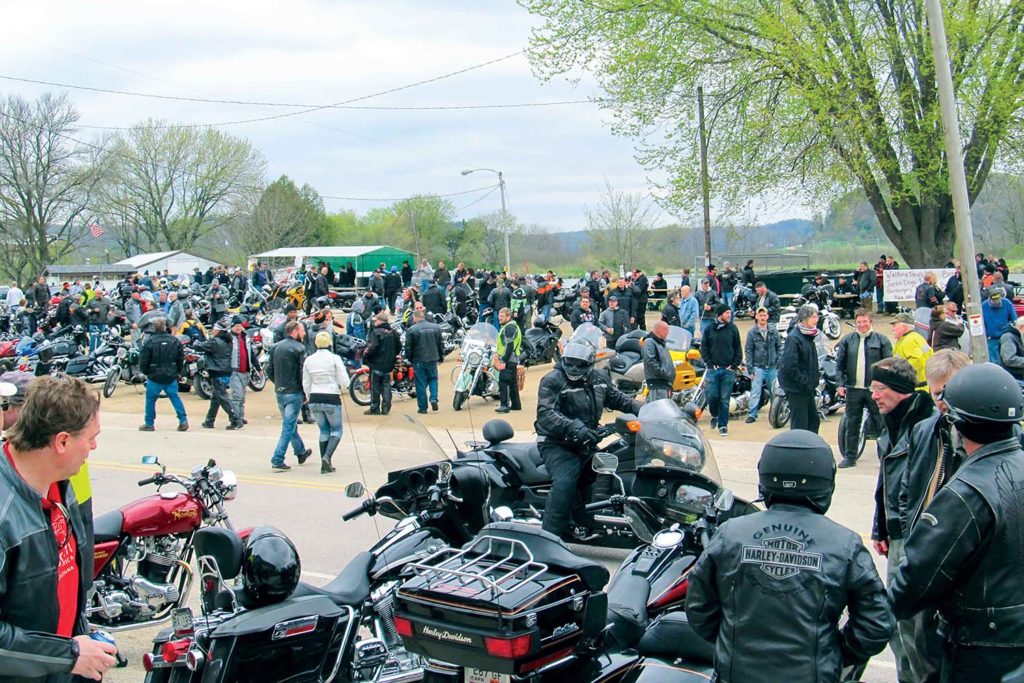
The invitation to dinner might have been a spring petal on the wind, gone by unseen in the turn of a head. How did I manage to hear the ding of the incoming text, even as it mimicked a tone identical to the imperative summons of the hotel desk bell, over the layered noise of so much coming and going? It configured itself from the molecules of the air of the bar at the airport Chili’s, where I sat killing two hours between flights. The name of the person who had issued it was “Jeff,” to whom I’d been “introduced,” also by text, that morning. He was the vague someone I was told would help procure a bike for me to ride in the vaguely understood run I’d attend the day after I gave a talk at the Black Earth Library. This was the reason I was downing Sam Adams in the first place in the Chicago airport en route to Wisconsin.
RELATED: Melissa Holbrook Pierson: Ep. 9 of the Rider Magazine Insider Podcast
The earth was, indeed, black in southern Wisconsin. This startling notion would pierce my thoughts only after 10 continuous miles of passing it. Sometimes I don’t pay attention to the obvious. It pays attention to me.
Thank you, I had typed back: It looks unlikely, since my connecting flight was just delayed by 45 min., and unless you are eating on European time, it doesn’t look like I’ll make it.
“These guys are old. They eat at 7:30. You could check the menu online, give me your order, and the food won’t arrive till 8 anyway.”
Although I could probably make it by 8, truth be told just the thought of walking into a restaurant, asking where I might locate a table of strangers, explaining myself and then making small talk, made me tired. More precisely, exhausted, to the point of panting. I have an internal timer ticking down the minutes I can be in the company of others before an insensible need to get away whispers urgently Go, run!
This is when the Fairfield Suites sings its Siren’s song, urging me toward the soothing deja-vu of anonymity. I could already feel the upswelling of relief loosed by the appearance of the green light after sliding the key card through the door lock: the lighthouse’s lone beacon. Through the stormy spray it promised safe harbor beyond the treacherous rocks of engaging, smiling, the effort of looking interested. I hang on to the rope that after so long is about to burn itself into my palm and I can feel I am about to let go. All I can think about is the comforting embrace of the bed it seems I have known all my life, with its marshalled pillows stacked in predictable order, and the Corian-countered bathroom that represents coming home again, only to a well-cleaned one. Its washcloth-folded-corner identicality will finally activate the exhale of distress withheld while communing with others of my species.
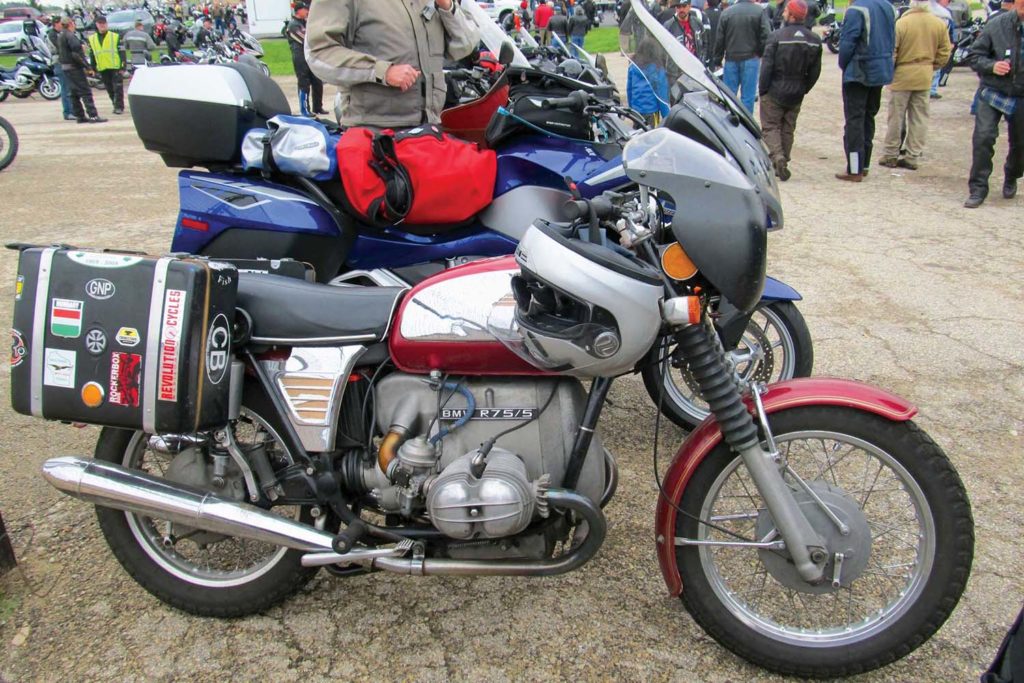
Then the late plane lands at the exact hour assigned to the on-time plane. As if the reason I too might be late had run backwards, time itself accordioning to something that had already been arranged. My phone’s map, asked to show the destination provided by Jeff, returns the arrival time. 7:30. Precisely. The restaurant is placed directly on the route to the hotel. I am being ordered to Smokey’s Steakhouse.
The minute the door opens I see the oracle knows me well. It is the kind of place I live for. Not for the food – I had to order salads in steakhouses, or potatoes – but for the chance to walk into the past, where it has been kept safe so we may breathe its lost air in the present. We are to laugh and order drinks from within circles of warm yellow light yielding to a velvety dark just beyond, mysterious shadows that are not so much the result of low light in dark panelled rooms but of accumulated layers of happiness. We are to dine in our own history.
At the front desk I ask where I might find the motorcyclists, most of whom are without motorcycles on a cold, wet night. I had thought this would pose some difficulty. Instead I hear my name. And “Right this way.”
We pass the bar where under festive string lights people order exotic Midwestern beers that have likewise been preserved unchanged since another time, the one that existed before the need to make new versions of what had been discarded without a second thought. The nearest we get now is a label with a carefully researched font, designed last week.
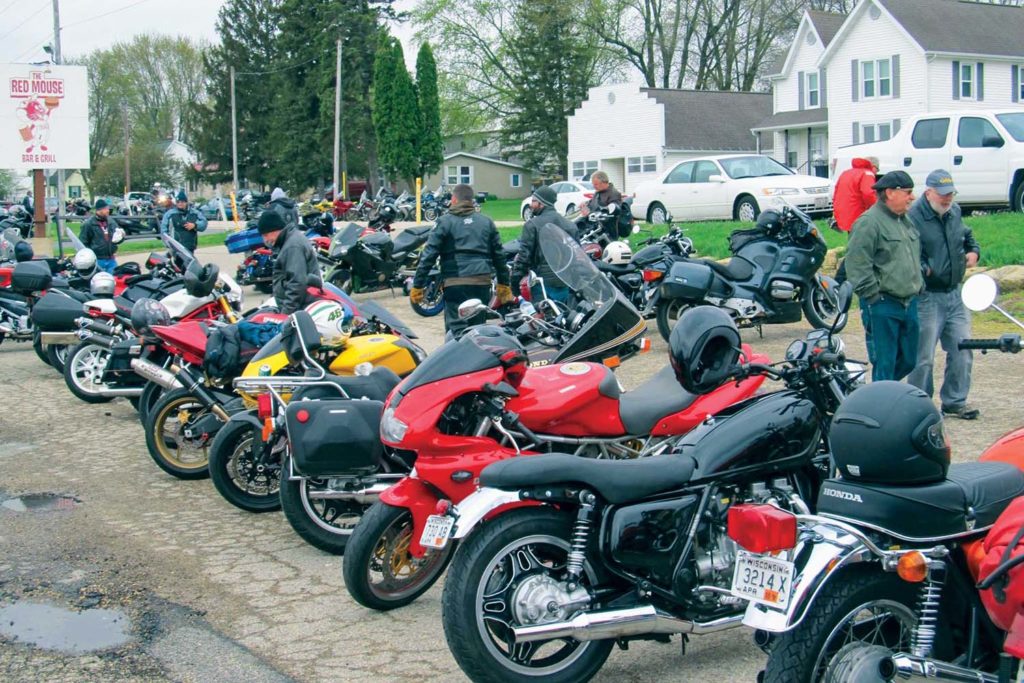
We head toward a private room in the back. As we go he tells me how his parents opened this supper club 63 years ago. Also that the Slimey Cruds eat here regularly. It is odd to feel such a pang on hearing the word “regularly.” There is nothing I have longed for more than a group of people to whom I could belong, where I might at last lay down a weary load. I most want what I fear most: to be with others, regularly.
The Slimey Cruds are people who appreciate legacy in all its forms. This old place, their old group, their old bikes especially, the European café racers that defined cool to a generation of yore. Like the brews here, their bikes are originals from before the era of nostalgia fetish, not a simulacrum of old – only with fuel injection and ABS (real spoke wheels though) – but genuine old. Lovingly polished, that’s all. In need of no reimagining because the original imagination was wholly sufficient.
I know none of the people arrayed around the U-shaped table. I spy one empty chair, at a corner. In moments like these I engage an old foe, a formidable prizefighter who is good at throwing a hook I never see coming. The sharp sting from the broken septimal cartilage floods my body with shock.
Or rather, I smile. It is a preemptive feint against humiliation, the punch I fear is coming. I sit in the empty chair and arrange my expression. I watch the butter, study the far wall. I turn to the man to my left just as he turns to me.
“Jeff,” he says. Then, “Glad to finally meet you.” But I’m looking into the eyes of someone whose story I have helped live, someone I’ve known all my life. The only seat at the table had to be next to Jeff.

The woman to my right extends her hand, gives her name. I know her too. But in a more conventional way: she is an officer of the BMW Motorcycle Owners of America, a club of which I am a member. She organized a panel on which I participated at a national rally. I had no idea she lived in Madison, much less that she would end up next to me at a dinner I came close to passing by. Her husband, next to her, leans over and tells me he had reviewed my first book years ago. In a few minutes he will stand and raise his glass to me with a quote from that review. After some more toasts everyone will turn their attention to plates of hash browns, served family style.
Jeff starts talking, ignoring the clam chowder in front of him (the menu’s alternative is tomato juice, a choice I last saw when I was 10). What he says is of course familiar, since I have spent days and weeks in his company. He’s at every gathering; we meet on the road and hanging around in shops. We speak often on the phone, as he’s one of those I turn to in times of need – of opinions, of answers. He knows so much about so much. It’s a small detail, almost beneath mentioning, that we’ve never met. I know already he is the type who has no time to waste prevaricating because he’s been in enough tough scrapes, in foreign countries, alone, had ties severed to loved ones through all the usual ways people go away, lots of loss under the bridge. He never spends a second talking bullshit because that would be a second lost to living. That’s why I always go to him. He reveals he owns 20 bikes; of course. I knew that. He shows me his phone. There’s a picture of his Mike Hailwood replica in the desert of Moab taken the week before, a surreal flash of red and green posing in the scrub like the looker she is.
At age 45, he went to law school so he could finance a life in which riding takes preeminence. By practicing law for six months, he earns enough to ride the other half of the year. Ride anywhere he wants.
Living is mainly about losing and I’ve lived very little, I think as I listen to Jeff’s stories. Sometimes it’s blood. (He is limping currently.) There’s losing things, getting lost, losing people, losing houses and money and your way, and then leaning back on a couch in your skivvies, rain-soaked gear having been peeled off, transforming these stories into Homeric poetry in front of a group of people who have just gotten off bikes too.
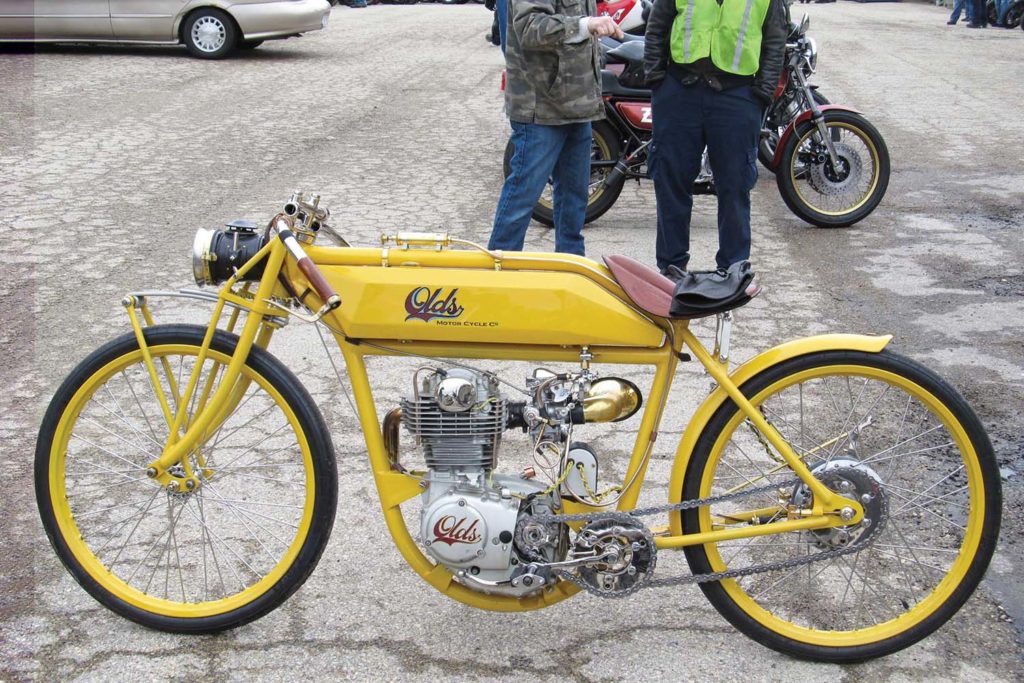
There must be a story about the missing tooth, but I haven’t heard that one yet. His smile is warm and takes you in.
And in. I excuse myself from dinner – the others will stay, apparently until this day becomes the next – almost desperate for the Fairfield but glad I lashed myself to the mast earlier. I have become smaller and smaller as my reserves were sucked out through a tiny aperture and now I need solitude and the ice machine and a chocolate chip cookie from a tray near the effervescent desk clerk, always happy to see me and say the same thing each time the door slides open. “Welcome to the Fairfield!”
As I leave Jeff too pushes back his chair. He tries to limp as fast as I walk, as if it doesn’t matter. It matters. I slow down, much as I don’t want to since my car is at the back of the lot and I don’t know why he’s coming out here in the first place and it puts me at 90 seconds’ disadvantage for the elevator to relief, I mean my room.
On the way he diverts our path briefly toward a great white extended Mercedes Sprinter van. What else. It can hold bikes and everything else you need while waiting for the destination, the signal to go past. He reaches in. “I’m going to give you my GPS. That way you can just press the home button and it will take you to my house so you can pick up a bike on Sunday.” He hands me the ruby slippers. And then a backup pair in case the GPS doesn’t work: by the time I’ve turned the ignition on the rental car a text pings. His address.
Riding so much, alone, in foreign parts, and in places far from people (the farther the better), requires installation of new software in the brain, a program that makes you think of everything. In fact the GPS would not work, wouldn’t let me in. But two mornings later the address from his text would be the north star guiding me out of the city into the countryside, winding through gentle hills and into what appears to be nowhere, which is naturally where Jeff would live.
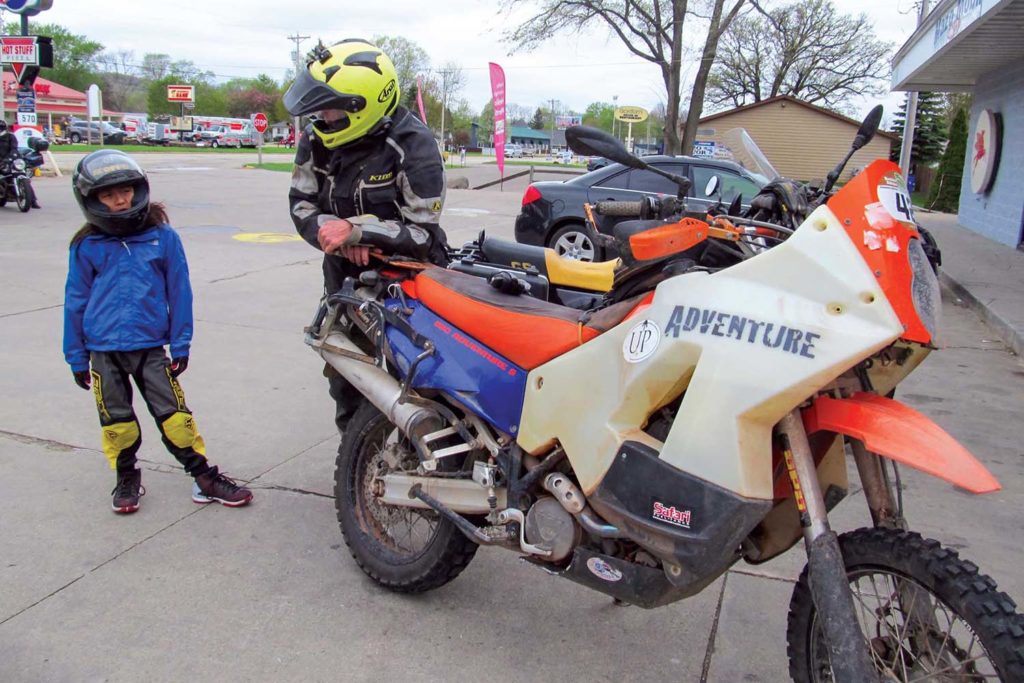
Before this, however, there is an intervening 24 hours. If this wonderment has happened tonight, what will occur tomorrow? First, the talk at the library to which five people or 50 may come, and maybe what I plan to say will please them or it will bore them. Then, as I understand it, a motorcycle movie at night. In fact I don’t know what tomorrow will hold, what black earth will belatedly appear.
I always thought Kismet was a place. Actually, it is, a few of them. The one on Fire Island represents it well, being a bit of Atlantic beach I visited as a teen. Ergo, kismet.
It is also another term for “the will of Allah,” and predestination is Allah’s thing. The will of Allah might well have another name: this wondrous place. Here I am no longer in charge. It is sweet to relinquish the semblance of control, that which dogs me and bites me and wearies me all at once. Here I meet people and on looking into their eyes for the first time hear a voice in my head that contradicts unimpeachable evidence. “I’ve known you all my life.” But that’s strange. You live in Richmond, Madison, Milwaukee, Seattle. This is the first time I’ve been here. Yet here I am looking at you now and I’ve always known you.
A weird sensation that touches me only in this world. It is replete with its own colors and language and atmospheric disturbances. It is a separate cosmos, hidden within the one everybody thinks is the only one. Its portal looks nondescript, just another rusty door, but this is just to hide the gilded paradise that waits on the other side.
Motorcycling. It’s like a living Watteau, sunshine and pinks, flying swings and satin whispering to the air. Every day a fête galante of baroque sensuality, though there’s black grease under the fingernails and a pocket torn half off the FirstGear jacket. (Happened one memorable day long ago in Baja. Or maybe Alaska? On the Haul Road.)
It is raining. The librarian has stationed long tables outside the room, above them signs reading “Motorcycle Helmet Parking.” Clever. Of course there are helmets there. There always will be in a place like this no matter the weather, for the people who cannot do anything but ride.
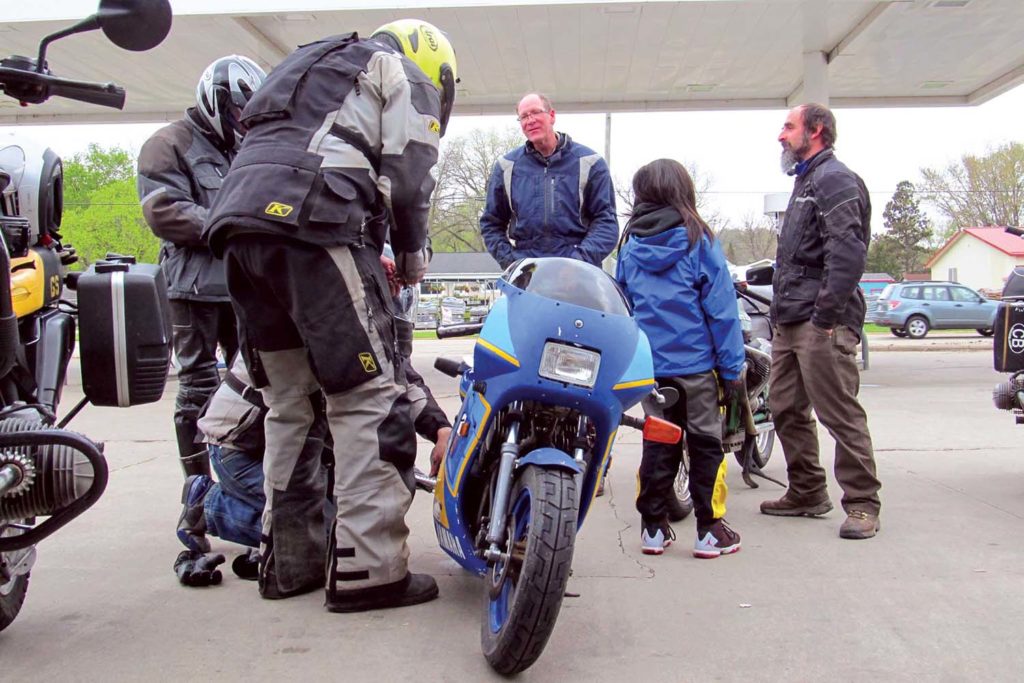
I stand before the room of people and talk. I read a poem called “Coda: Road.” Road is always the coda to the story called road. I am taken out for lunch by some riders who have come from Chicago.
I have half an hour in my generic hotel room of solace, after hours of parley with those of my kind who never quite seem exactly like me – they are all connected to others, and to the world, in ways I ache to be, like the child wishing hard on the other side of the pane from the brand-new Flexible Flyers or the cupcakes with frosting towers and sugar flowers – before I must reattach prosthetic wings. In the neverending rain I drive into the heart of Madison. There’s the Barrymore Theater, but ah – here’s the parking space. It’s so far away I get lost and soaking trying to find my way back on foot.
I arrive on time for the beginning of the movie even though I should have missed it. This is a trend in the magical land that is Wisconsin. I have time to buy a beer in the lobby and retreat to a pilaster which will be my spine. I stand tall and invisible, watching clots of motorcyclists gesticulate, laugh, confer. (My tribe, to which I both belong and do not, composed as it is of humans.) The group is especially tight in Madison, a family of a few hundred.
In the ’70s, a couple of university grads noticed each other, or, more to the point, each other’s bikes. When you see someone riding your type – a Triumph, a Ducati, a CB750 – you recognize a kinship that goes deeper than mere DNA. And when you’re doing it in the same environment that sorely tests the person who loves to ride that motorcycle, denied during the long months of ice and wind blowing off the lakes (both small and Great), the recognition is like solder, hot and fast.
They got together to ride and wrench. Information was exchanged, in garages and over dinners. Next, necessarily, came the name: any loosely affiliated group of motorcyclists is a gang, in the eyes of the outside world. Up to no good.
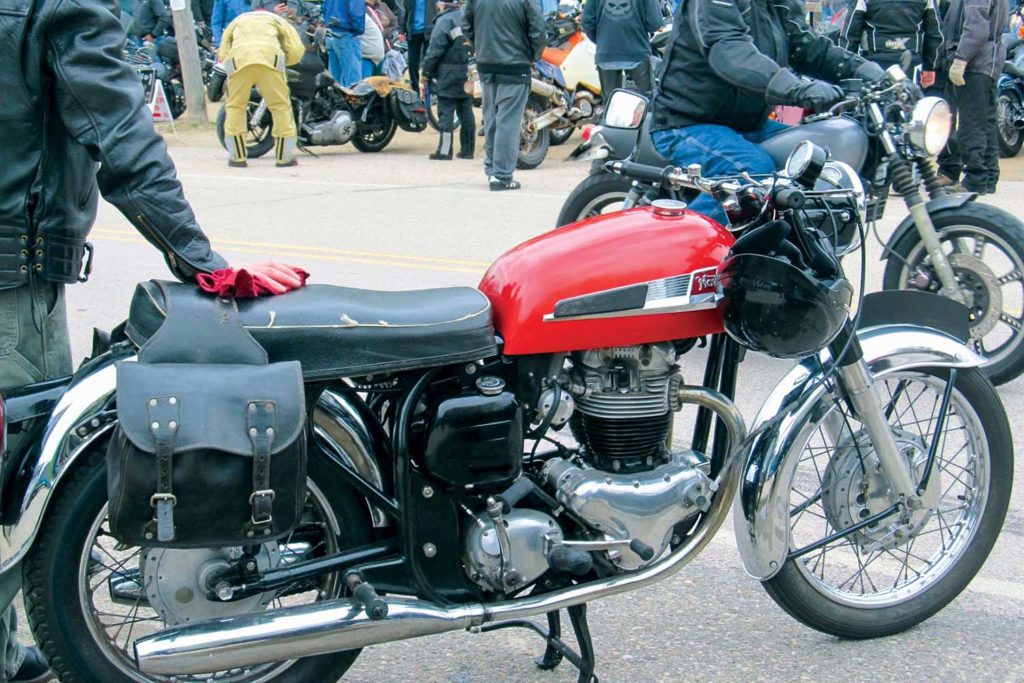
This group of intellectual hell-raisers, who in truth did like to ride fast – why else fall in love with metal beings in whose veins flows the blood of born racers? why else ponder the depths of carburetor jetting and aftermarket exhausts, ratios of bore and stroke? – decided to give the public what they wanted. What moniker would best suit these exemplars of the anti-social’s lowest rank? The Slimey Cruds it would be. A little in-joke. Next they would put on a run, where they might show the townspeople who really owned the roads, their slow-rolling thunder implicit warning.
Or not. Because the run is no run at all: you find your own way between Pine Bluff and Leland. Together, but apart. It’s 30 miles. So your run might take the better part of the day; there is no such thing as a straight line in a motorcyclist’s desires. There is wandering, exploration, and chance. There is time stretching to whatever length the way demands.
When you meet again, a thousand machines will be parked side by side in a roadside museum of individualism. The old, the painstakingly restored, the elegant and the rare – and sometimes all of these in one: the one you love to ride, and the one others love to pause to eye and imagine these lonely, embraceable curves on. (For that is the real secret of Madison and its diehard riders – their personal possession of endless roads through some of the most heartbreaking scenery in all America.)
Showing a movie the night before the run is the ritual warm-up to this riding-season warm-up; the next run, for it is a biannual event, will mark the end of the season four months later in October. It is not unusual for it to snow, or be cold enough anyway. Tomorrow it will also feel cold enough.
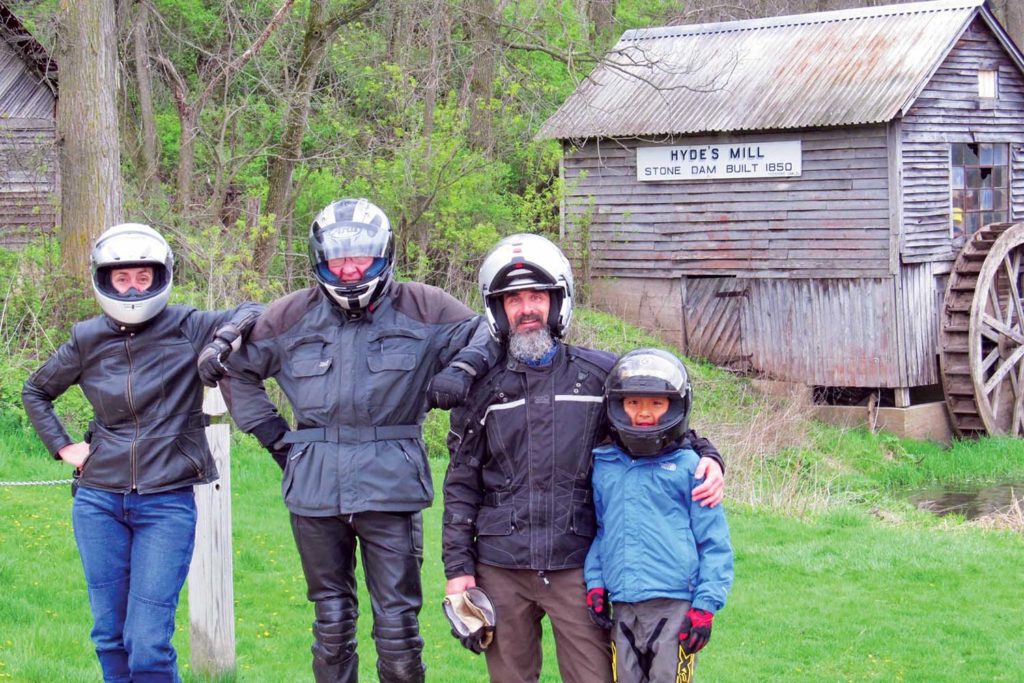
I overhear one man say to another, “That bike saved my life,” followed by knowing laughter. All that needs to be said, multivalent meaning. I know all the levels instantly, intimately. Bikes saved my life too. And gave me this one. Now comes a temporary pause in the beer-drinking portion of the evening. It will resume at intermission. I enter and find a seat alone. The lights go down and the movie begins to roll. It tells the story of a New Zealander who was crazy enough to hand-build a race bike from the ground up. Its design is revolutionary. He works on it night and day. He brings it to America to compete in the Battle of the Twins; there is crisis and devastation and triumph and death (Isle of Man, of course) and more triumph, amid continuous mind-bending work and invention. Then the New Zealander is dead at age 45, of cancer. Now 10 of his bikes remain in the world, frozen forever at some indeterminate point in the progress toward perfection. There will never be any more, so individual an object they are. The man who was their beating heart is gone, and they are like Lenin’s embalmed corpse: at once his monument and his requiem mass. The one that got away.
I feel Jeff behind me. I know he’s there even if I don’t see him in the dark. At intermission I do, and I move to sit one row in front of him. I hear his voice, first to one side and then the other. Making plans with his cohort: What time will you be over? Yeah, not sure what I’ll ride. So-and-so is bringing the truck at 9. She’s coming a little later.
“You’re coming at 10, right?” Right, I say. The lights go down again.
The next morning I pass through a cattle gate left ajar at the end of the driveway to Jeff’s farm. The place is well hidden. It is also Penn Station for motorcyclists. There are five or six bikes on a concrete pad outside what looks like an old dairy barn; a Quonset hut on the other side of the farmyard holds what must be the rest of the stable. I had overheard one of Jeff’s friends answer a question from someone the night before: “Well, if you’re counting frames too, then I have around 40 bikes. I think.”
I have my choice of two specimens from the early ’70s, a Moto Guzzi Eldorado or a BMW slash-5, the second of which a friend of Jeff’s is just unloading from a van. Its shiny chrome with insets gave rise to a perfect nickname, Toaster Tank. Ask and ye shall receive. As I get out of the car another friend arrives, a gentlemanly writer who is a celebrity in the motorsports world who will later tell me about the happenstance that led to his career, one sheaf of typescript fluttering to earth and caught by these hands, not those. Decades later, he is known to millions. What might have happened to him otherwise? He does not know. Pure chance has a central role in deciding everything of moment.
We are getting ready to go. I’m standing in the kitchen – I have seen places like this before, where unmarried men live, and the bottle of bourbon is always in the same spot next to the sink, the same old grease giving the patina of history to the stove, dishes from yesterday or last month in the same leaning tower on the counter – and I ask Jeff if I might use his bathroom. He points to the front door. “There’s no bathroom.” Oh, I say. My brain automatically scrambles to make a sensible narrative out of facts suddenly tumbling as if during an accident: What happened here?
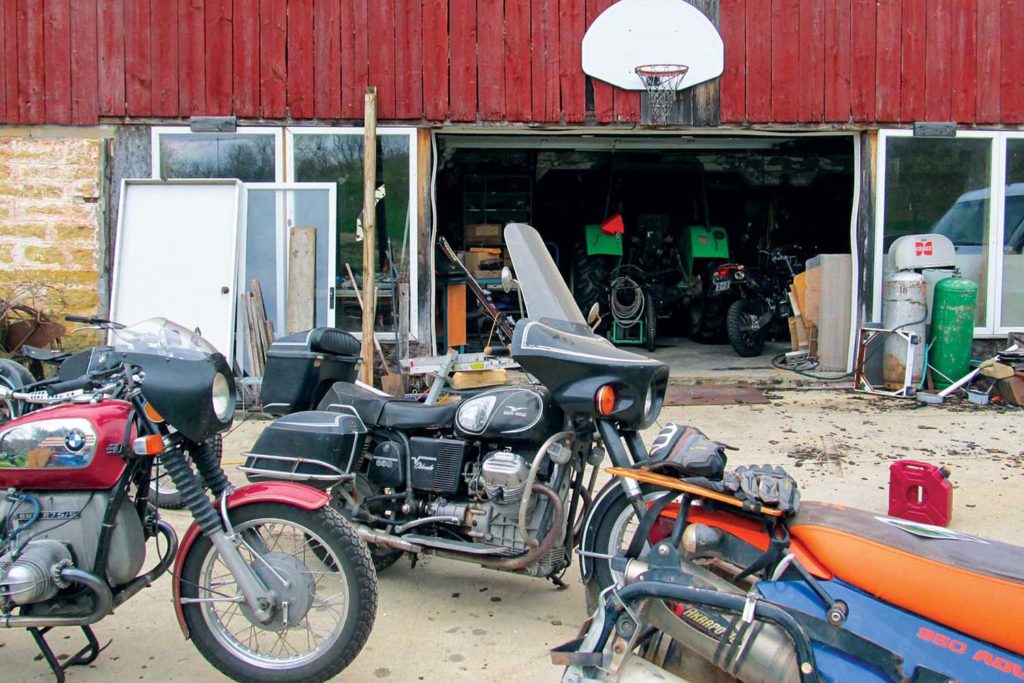
For now it’s a simple matter of disappearing into the brush behind the garbage cans.
But how does one go without a bathroom at night, in the winter, when there are houseguests? How does one live without a bathroom?
One lives to ride.
When Jeff is on his big dual-sport with the enormous plastic gas tank that drapes the frame like saddlebags on a camel, carrying enough fuel to take him ever deeper into unpeopled regions, even the concept of a bathroom is unnecessary, a word in a defunct language. You learn to live without what you no longer need. He tells me the house he bought when he was younger, an old farmhouse, burned down a couple years ago and with it everything he owned. His history, that of his family. His books and his music and his memories. It taught him something, about the impermanence of things and their ultimate irrelevance. That the lesson was grotesquely painful was a testament to its necessity. Now he lives in what was the old farm’s chicken coop.
As we head toward Pine Bluff, motorcycles thicken. They pass us, shoom. We pass them, on the side of the road, in the other lane, in gas stations. The highest concentration occurs in the parking lot of a big barn of a bar – inside are coffee urns and “Welcome Motorcyclists” banners and people chatting and meeting, again or for the first time, and still the place feels like an empty cavern – then it is time to go. Jeff leads with a friend following on a YSR pocket bike who looks like a cartoon, a man on a machine half his size, hovering a few inches above the pavement. Nonetheless I have to work to keep up although I crack the throttle wide on the old BMW. The journalist is behind me (I critique my riding through his eyes, hoping he doesn’t hear when I mis-shift, precisely as I always hope no one notices the red-faced panic or quiver of fear in my voice when nothing has caused it but being with you), and behind him the owner of my borrowed ride, his 12-year-old son riding pillion.
We fly under open sky. We are lost, one by one, around curves that rise and fall mid-turn, then are met again on the straightaways. We ride in precise concert, singers who have practiced the harmonies on this particular chorus so many times we are one voice in many parts. I’ve just met them but we’ve known each other forever.
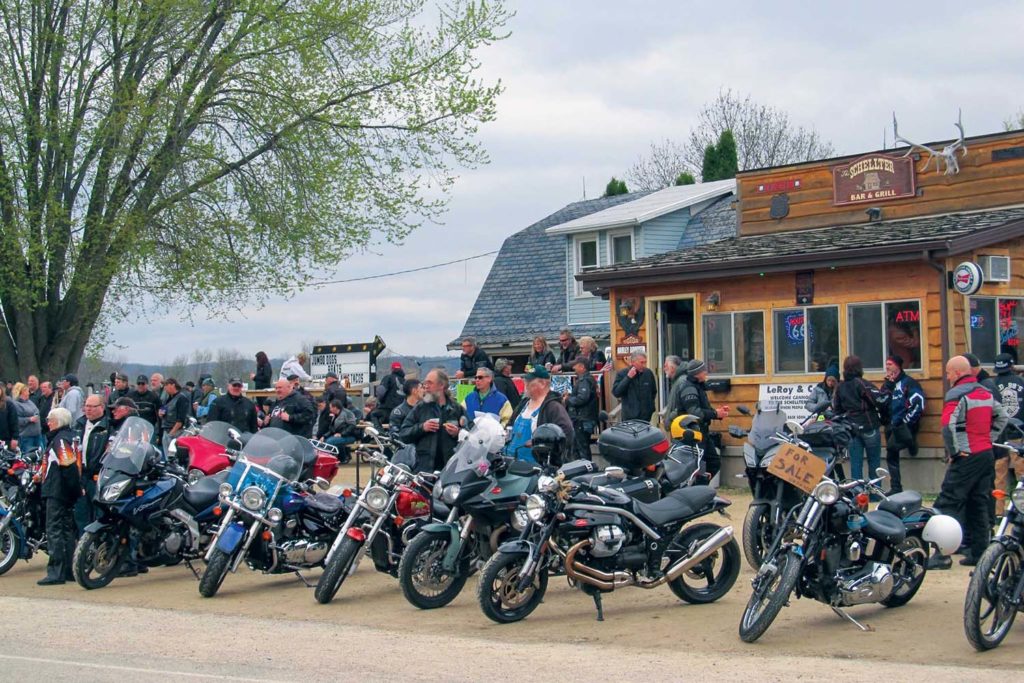
In Leland, its population of 50 temporarily boosted by a factor of 15 this day, the concentration of motorcycles has reached critical mass. The Slimey Crud Run functions just south of pure anarchy, which means it functions as it was intended: valve clearances spot on, carburetion dialed in, torque a propulsion of sensual ideal, everything else the possession of gorgeous chance. Bikes line both sides of the road around Sprecher’s Bar, an aboriginal watering spot set down in the middle of a nowhere that was also pretty much nowhere in 1900, when the elderly owner’s father bought it as a general store. To keep it going through two world wars and a great depression in between, Sprecher’s tried a little of everything. The recipe that ended up the keeper was beer and guns. It might be the only place in the country now for one-stop shopping, your argument and its conclusion obtained in the same room. A sign tacked on the back wall reads “If you voted for Obama, please turn around and leave! You have proven that you are not responsible enough to own a firearm!” Over it hangs a Confederate flag, no doubt a recent addition to the décor, as Wisconsin recruited and lost 91,000 men for the Union cause, many of them in the famously noble Iron Brigade.
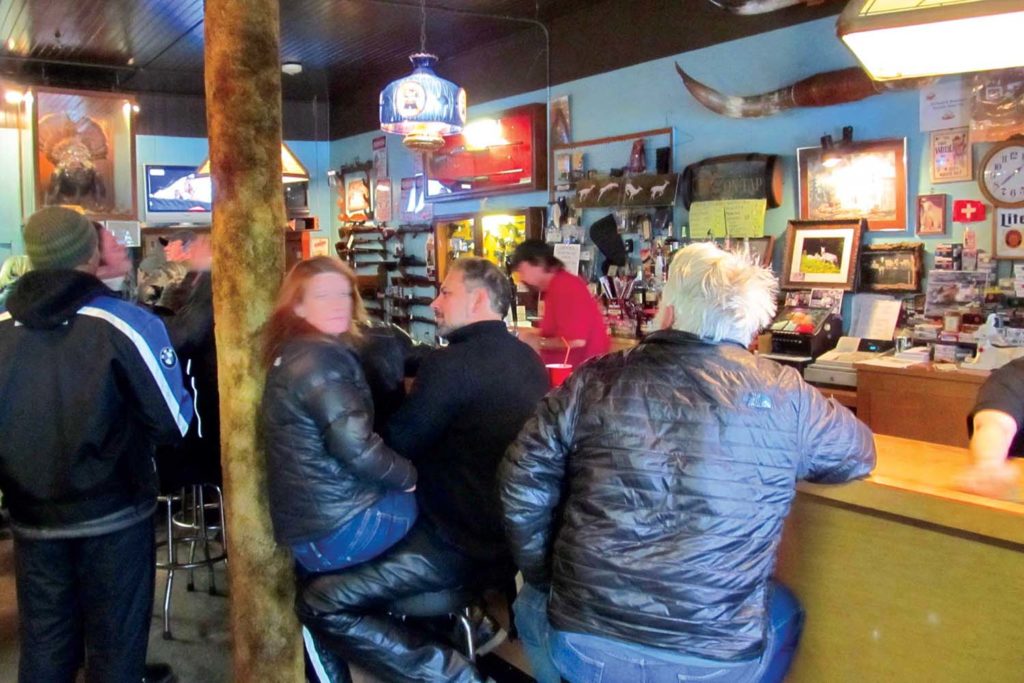
We get cheese and salami sandwiches (mine minus the salami), and even though the town is flooded with people, as in the parable of the loaves and the fishes there are still stools available at Junior Sprecher’s bar. There one can sit and gaze at the wall, its rifles and shotguns racked and handguns displayed in a glass case near the establishment’s framed license to sell them. I don’t leave even though I was asked so politely by the sign. Jeff has been absorbed somewhere outside into the mass of his countrymen. When it’s time to leave he materializes next to me.
We mount up again. Back a different way; here there is always a different way, and that is the only way. An hour and a half later we snake up the driveway, lean bikes on sidestands. At home he peels off his gear and now wanders around in his long underwear. He’s a big man. He loads the potbelly stove with lumber scraps and gets a flame going. Beers are found. We sit variously on office chairs and other scavenged seating. We are in the only place we belong at an unrepeatable moment. I sense something in the room I have either been longing to become or something I already am: elementally human, molecularly social. Kin. But I will leave.
Two days and a thousand miles separate us now, jet fuel long burned or offloaded to the long-suffering earth. It presaged our return, a trail between us and all those we were soon to rejoin, or hoped to anyway.
I am outside, home, when I hear a sound from the phone in my back pocket. I pull it out and see what I or someone else or maybe some thing have made happen. The phone is calling Jeff. I quickly end the call, praying I punched the button quickly enough. Filled with rising curiosity about how this might have happened. Chastened. Afraid. I did not mean to connect.
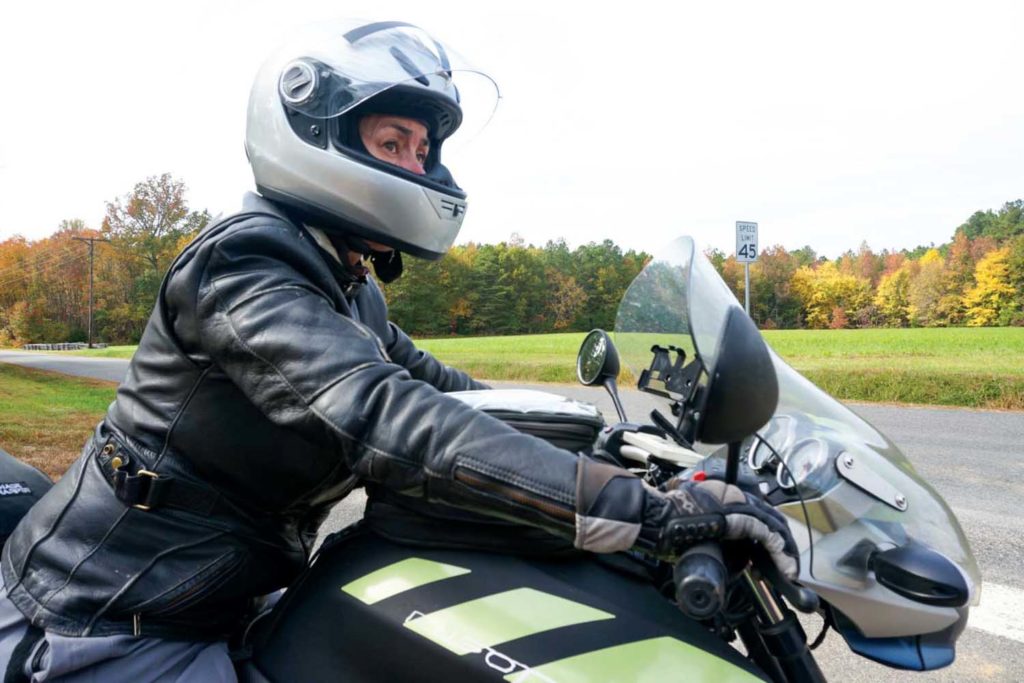
“Connected” first appeared in Motorcycles Are Magic: An Anthology, edited by Melissa Holbrook Pierson with assistance from George Sarrinikolaou and published in 2021 by 10mm Socket Press. Pierson is the author of The Perfect Vehicle: What It Is About Motorcycles; The Man Who Would Stop At Nothing: Long-Distance Motorcycling’s Endless Road; The Place You Love Is Gone: Progress Hits Home; Dark Horses And Black Beauties: Animals, Women, and Passion; and The Secret History Of Kindness: Learning From How Dogs Learn. Her essay “Alone: Onward Through The Fog” was published in the September 1992 issue of our sister publication Rider. For more information, visit MelissaHolbrookPierson.com.


